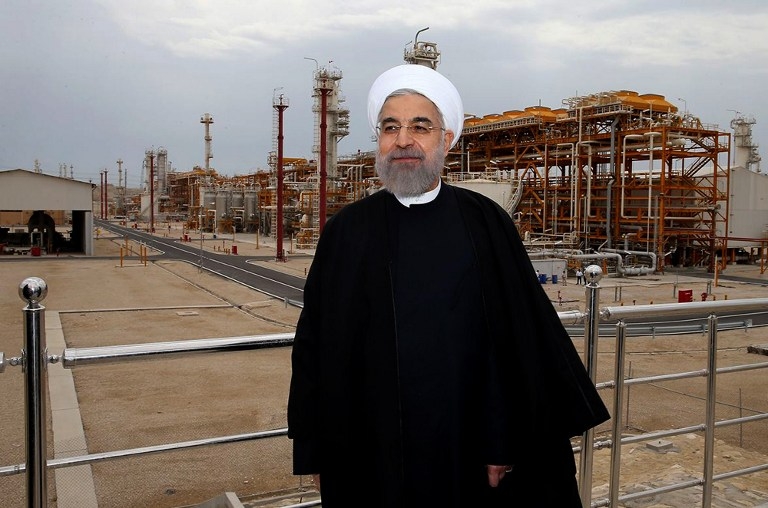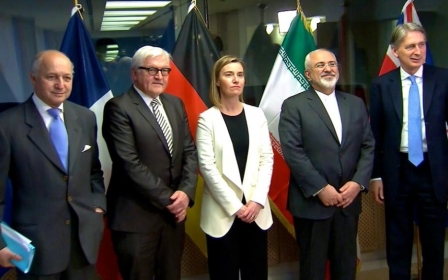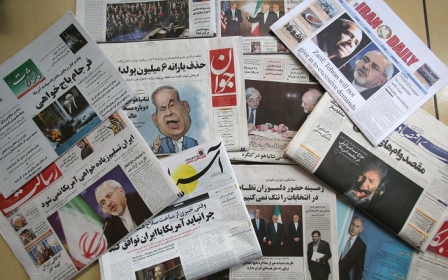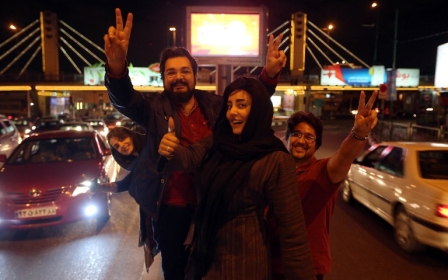Rouhani’s survival rests on nuclear agreement

The framework agreement announced yesterday in Lausanne is more detailed and comprehensive than many had expected. Barring any unexpected difficulties or dramatic events, it paves the way for the signing of an official historic agreement on 30 June.
Based on yesterday’s disclosures it appears that Iran made major concessions in the final days and hours of the marathon talks. In view of the fact that the nuclear programme represents three decades of political, strategic and financial commitment, this is a major climb down by Iran.
Whilst it appears that tough negotiations may still be required right up to the official deadline of 30 June, at this stage there is ample scope for optimism. Both the Iranians and the Americans have invested too much political and diplomatic capital in the process to walk away without a comprehensive deal.
Once a final deal has been signed it will arguably be the most complex and important diplomatic agreement of modern times, involving as it does so many important countries, the outcome being the peaceful resolution of the Iranian nuclear dispute.
This deal has many detractors and opponents, as epitomised by the hawks in Washington and hardliners in Tehran, powerful factions opposed to an agreement on ideological and political grounds.
Iranian President Rouhani has effectively staked out his political future on this nuclear deal and the attendant political and economic bonanza. Rouhani has raised public expectations of a deal so high that absent a durable agreement he is unlikely to serve a second term.
Normalising Iran
Hassan Rouhani won the presidential elections of June 2013 largely on his promise of lifting the sanctions, and by extension resolving the dispute over Iran’s controversial nuclear programme.
This was a big promise, but credible nonetheless, in view of Rouhani’s impeccable three-decades-long experience as a capable establishment stalwart. Hitherto Rouhani has kept his promise, as evidenced by the preliminary agreement announced yesterday.
To better understand Rouhani’s intentions it is important to examine the underlying philosophy driving his foreign policy. Hassan Rouhani is at heart a pragmatic conservative with deep familiarity with the national security doctrine and institutions of the Islamic Republic. As a result he is fully trusted by all the sensitive Iranian institutions, in particular the powerful Islamic Revolutionary Guards Corps (IRGC).
In the run up to his election in June 2013 Rouhani’s team branded him purple in order to distinguish him from the country’s reformist factions, known collectively as the Green movement. The political message was clear: Rouhani is a centrist, and while he may be close to the reformists on some issues, nevertheless he will strive to strike an independent tone on all key issues.
Rouhani’s foreign policy team is exceptionally strong. The depth and strength of this team is personified by foreign minister and chief nuclear negotiator Mohammad Javad Zarif. A veteran Iranian diplomat, Zarif is highly regarded in Western diplomatic and intelligence circles.
Zarif has already made diplomatic history by breaking one of the biggest taboos in the Islamic Republic, namely speaking directly to the United States. The close relationship he has forged with US Secretary of State John Kerry has come to dominate the imagery and symbolism around the protracted nuclear talks. These images would have been unthinkable a few years ago.
This is where we come to heart of the matter. For Rouhani and his team, resolving the nuclear dispute is synonymous with ending the Islamic Republic’s Cold War with the United States. While fully fledged normalisation may not be on the cards - in any case that will take years - Zarif and his allies clearly aim at placing Iranian-US relations on a stable footing.
By any estimation, this is a huge ambition and one that will have repercussions not just for all aspects of Iranian foreign policy but most likely for domestic policy as well. After all, opposition to the United States has been a cardinal feature of post-revolutionary Iranian political culture.
Big gamble
Zarif’s big ambition is matched by the limitations placed on his office. At present Iranian foreign policy appears to have two directors with Zarif managing relations with the West, while Iranian Revolutionary Guards Corp (IRGC) Qods force commander General Qassem Soleimani effectively runs Iranian policy in the region.
This reflects the wishes of Iran’s Supreme Leader Ayatollah Seyed Ali Khamenei, who appears to have given Rouhani and Zarif the green light to reach a nuclear-specific agreement with the United States in order to relieve economic hardship.
At the same time Khamenei clearly believes that the IRGC Qods force is the most competent institution to manage and direct Iranian interests in a rapidly fragmenting and collapsing Middle East.
But beyond these institutional challenges, President Rouhani and his foreign policy team face a much bigger obstacle, namely convincing the bulk of Islamic Republic loyalists of the merits of a qualified rapprochement with the United States.
This is a problem as old as the Islamic Republic itself. While reformists and Rouhani-allied “centrists” are convinced that Iran needs to consistently engage with the United States to achieve its aims in the region and beyond, the bulk of Islamic Republic loyalists do not agree with them.
Overcoming this obstacle requires a genuine national debate which takes full stock of the vicissitude of Iranian-US relations since the Iranian revolution. It would also require genuine gestures of goodwill by the United States, as opposed to the realpolitik pursued by President Obama.
Rouhani and Zarif are not interested in a national debate as they fully recognise their political and institutional weakness within the system. Instead they are hoping that a nuclear deal creates an unstoppable momentum toward greater engagement with the United States.
This is a big gamble in so far as Rouhani will be trading ideological integrity and policy coherence for short-term political gain. Even if a nuclear deal proves durable, the Islamic Republic is unlikely to come to terms with the United States unless and until an ideological and cultural shift takes effect in Tehran.
Iranian President Hassan Rouhani shows him at phase 12 of the South Pars gas field facilities in the southern Iranian port of Assaluyeh, on the shore of the Gulf, on March 17, 2015.
- Mahan Abedin is an analyst of Iranian politics. He is the director of the research group Dysart Consulting.
The views expressed in this article belong to the author and do not necessarily reflect the editorial policy of Middle East Eye.
Photo: Iranian President Hassan Rouhani shown at phase 12 of the South Pars gas field facilities in the southern Iranian port of Assaluyeh, on the shore of the Gulf, on March 17, 2015. (AFP / Iran Presidency Office)
New MEE newsletter: Jerusalem Dispatch
Sign up to get the latest insights and analysis on Israel-Palestine, alongside Turkey Unpacked and other MEE newsletters
Middle East Eye delivers independent and unrivalled coverage and analysis of the Middle East, North Africa and beyond. To learn more about republishing this content and the associated fees, please fill out this form. More about MEE can be found here.





